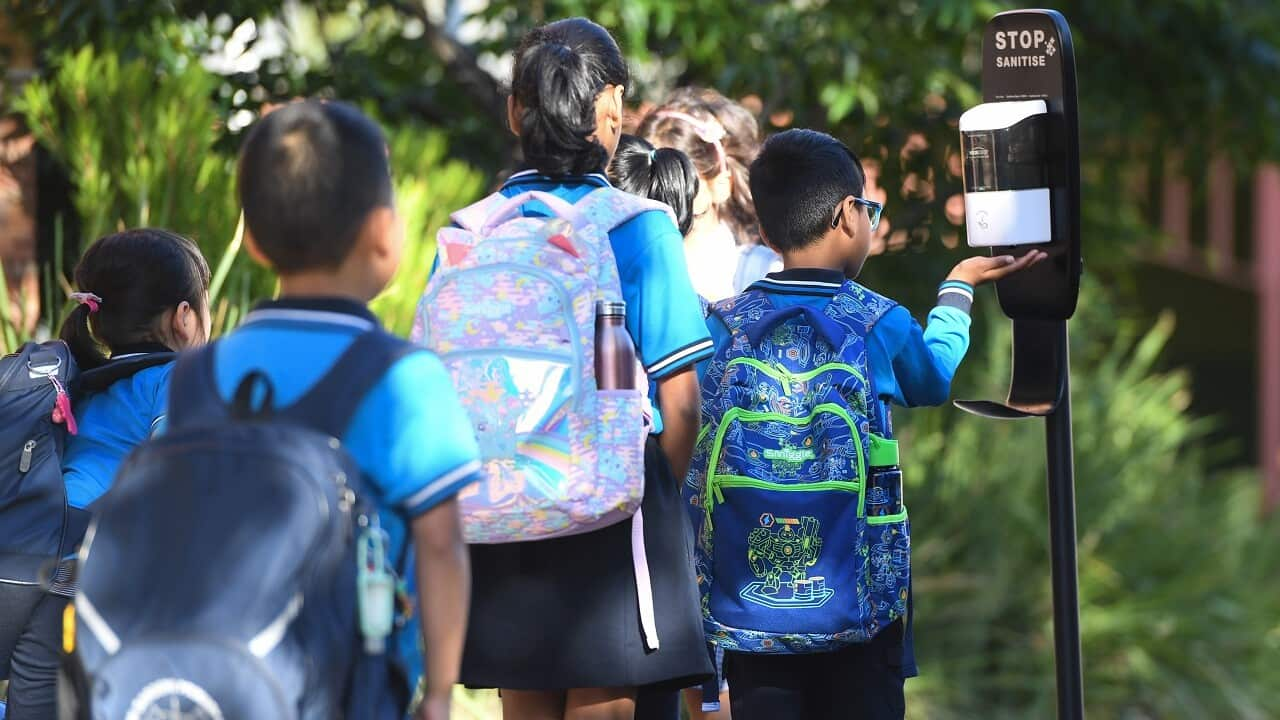For 24-year-old Narayan Khanal, life is divided into two halves.
Born and raised in a refugee camp in eastern Nepal, he spent his first 12 years living in uncertainty.
For the past 12 years, he has lived in regional Australia, mainly in Albury and Wollongong, where he is blossoming.
Highlights:
- Lhotshampa man Narayan Khanal was born in a refugee camp in Nepal
- The 24-year-old is one of four young Australians to represent the nation in this year’s Y20 Summit in Indonesia
- Mr Khanal is a New Colombo Plan Scholar studying medicine
Now this child of Lhotshampa parents who fled Bhutan fearing persecution is preparing to represent Australia on the world stage.
The University of Wollongong postgrad student, who is studying medicine, is one of four Australian youths chosen to participate in this year’s Y20 Summit in Indonesia.
The summit, which takes place July 17-24, welcomes ‘future leaders’ who represent the top 20 economies of the world and is an agenda-setting forum for the G20 Presidency.
Mr Khanal says he and the other participants will contribute to the Y20 Communique, which highlights youth perspectives on major global issues.
“We will then present the communique at the G20 Summit for the leaders to consider,” he tells SBS Nepali.
“Both summits aim to find solutions to global issues, and we are playing our part.”
This year’s theme, “From Recovery to Resilience: Rebuilding the Youth Agenda Beyond COVID-19”, focuses on four major topics – Digital Transformation, Diversity and Inclusion, Sustainable and Livable Planet, and Youth Employment.
Mr Khanal will pioneer the topic closest to his heart – Diversity and Inclusion – and plans to use the occasion to address racism and discrimination.
For that, he is proposing support for young minority leaders in Australia.
“We need to have a documentary series encompassing their success stories, challenges and experiences,” he says.
“If these stories get shared on social media, I think many others will learn that young people are aware of ways they can contribute to initiatives that foster empathy and welcoming places.”
Who are the Lhotshampas?

A group of young Bhutani refugees play football on a field inside Beldangi 2 refugee camp. Source: Getty Images
The Lhotshampas - meaning ‘southern borderlands’ in Dzongkha, the Bhutani language - is a term for people of Nepali origin displaced from Southern Bhutan.
One of the three main ethnicities in Bhutan, they were forced into exile in the early 1990s and then sought refuge in Nepal.
After spending almost two decades in UNHCR-managed camps, many now call countries like Australia, New Zealand and the US home following a resettlement process that began in 2008.
Australia: trials and tribulations
However, Mr Khanal says settling into Australia came with its challenges.
“First, we had to learn the language of the land,” he says.
“Not knowing the local way of life and systems made life even harder. Simple things like how to cross a road at the traffic signal.”
He says racial slurs were thrown at him and his community made him feel helpless and hopeless.
“The vast majority of Australians are good, friendly people. However, there are always one or two who are discriminatory or racist, and we can collectively tackle these issues.”
Mr Khanal says his early years of school were difficult.
“Because of the language barrier, I hardly remember what I was taught then.”
“Once you become proficient in a language, things you learn stick much better in your memory.”
High achiever
Years later, Mr Khanal now boasts an impressive list of achievements.
A finalist of the Australian Human Rights Commission’s Young Person’s Human Rights Medal in 2018, he was named Young Citizen of the year by Wollongong City Council in its 2019 Australia Day Honours.
Also in 2019, the University of Wollongong awarded him its most prestigious honour – the Robert Hope Memorial Prize. The medal, which celebrates the institution’s founding chancellor, Robert Hope, is awarded annually to a student who shows exceptional academic performance, outstanding leadership, and a significant contribution to the university or wider community.
The medal, which celebrates the institution’s founding chancellor, Robert Hope, is awarded annually to a student who shows exceptional academic performance, outstanding leadership, and a significant contribution to the university or wider community.

The city of Wollongong Source: The city of Wollongong
“From an early age, I was inspired to give it my best in whatever I do, and I think that has helped me achieve everything in my life so far,” he says.
Mr Khanal, however, confesses he hasn’t always been proud of his academic performance.
“Truth to be told, when I graduated from high school, my grades weren’t good,” the Colombo Plan scholar says.
“Looking back, I realised that it is not about the marks, but about being disciplined in what one does. And the foundations, the building blocks, are more important.”
Success runs in the family
Mr Khanal says his older brother, Ram, laid the foundation for his own success.
“He’s done really well and is already practising as a doctor,” he says.
“I was very much inspired by what he achieved here in Australia. His advice has always been to maximise the opportunity by studying well.”
However, Narayan Khanal says his dream of studying medicine was his own.
“When I was about to graduate from high school, I was reflecting on my time spent in the refugee camp in Nepal where many of our community lost their lives due to the lack of proper medical care.
“And I was seeing the similarities of our suffering in other people of refugee communities and the Indigenous population in Australia.”
He says growing up in a regional town where services are not on par with those available in metropolitan centres also cemented his desire to study medicine.
“Australia has given us a lot, and I think it is time to give back to Australia too. One has to grab the opportunity when it presents itself.”






